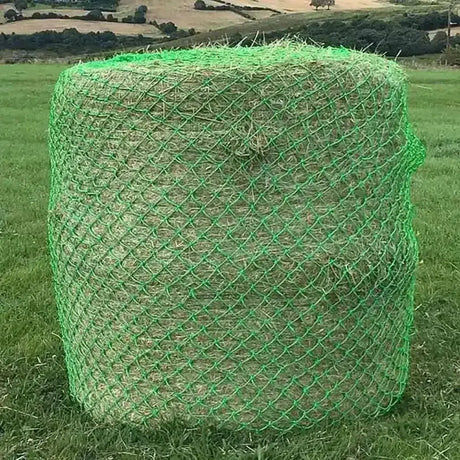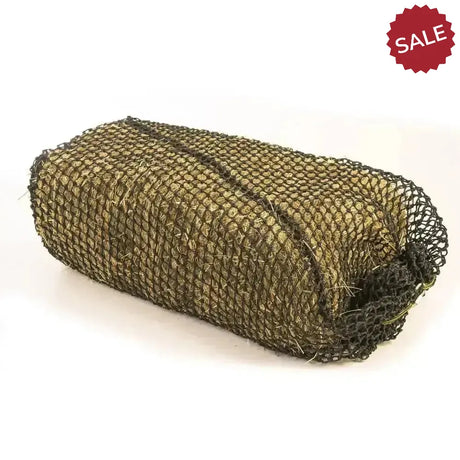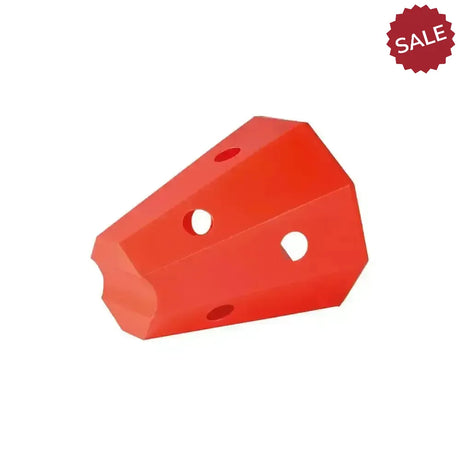Field Feeders For Hay and Haylage
Field feeders for hay are devices or structures used to provide hay to horses and other grazing animals in outdoor environments, such as pastures or paddocks. They are designed to protect the hay from being wasted or contaminated and to ensure that multiple animals can feed simultaneously. Here's a detailed overview:
Types of Field Feeders for Hay:
-
Hay Racks or Cradle Feeders:
-
Design: These feeders typically have a raised structure that holds hay off the ground. They often have a metal frame with slats or bars that allow horses to pull out hay while preventing them from dragging it onto the ground.
-
Usage: Ideal for small groups of horses, these feeders help reduce wastage and keep hay clean. They are often used in areas where the ground may be muddy or wet.
-
Round Bale Feeders:
-
Design: These feeders are circular or hexagonal structures designed to accommodate large round bales of hay. The bales are placed in the center, and horses can feed around the perimeter. Some designs have partial covers or bars to prevent horses from climbing into the feeder.
-
Usage: Perfect for feeding multiple horses simultaneously, these feeders reduce waste and keep hay contained, especially in larger pastures or paddocks.
-
Covered Hay Feeders:
-
Design: These feeders have a roof or cover to protect the hay from rain, snow, or harsh sunlight. They can be standalone structures or combined with other types of feeders, like round bale feeders.
-
Usage: Ideal for areas with variable weather conditions, covered hay feeders help keep hay dry and fresh, preventing spoilage and reducing waste.
-
Hay Nets or Slow Feed Hay Bags:
-
Design: Large haynets or bags can be hung or placed on the ground in fields. They are often designed with small mesh openings to slow down the feeding process.
-
Usage: Suitable for controlled feeding and reducing hay wastage, these can be moved around the field to prevent soil compaction or overgrazing in one area.
-
Ground-Level Feeders:
-
Design: These are low, often open-topped feeders placed directly on the ground. They can be simple troughs or more complex designs that keep hay contained while allowing easy access.
-
Usage: Best for situations where horses need to feed from a more natural ground-level position, but they may not be ideal in very muddy conditions.
Benefits of Using Field Feeders:
-
Reduced Hay Waste: By keeping hay contained and off the ground, field feeders minimize wastage, saving costs and ensuring that more hay is available for consumption.
-
Improved Hygiene: Field feeders help prevent hay from becoming dirty, wet, or contaminated with manure, which can reduce the risk of health issues like respiratory problems or digestive disorders.
-
Durability: Field feeders are usually made from sturdy materials like galvanized steel, heavy-duty plastic, or wood, ensuring they can withstand the elements and the wear and tear of daily use by large animals.
-
Multiple Feeding Stations: Many field feeders are designed to accommodate several horses at once, reducing competition and allowing for more peaceful feeding dynamics.
-
Weather Protection: Covered or roofed feeders protect hay from rain and snow, helping to maintain its nutritional quality and reducing spoilage.
Considerations When Using Field Feeders:
-
Placement: Field feeders should be placed in areas that are well-drained to prevent mud buildup, which can cause horses to slip or lead to hoof problems.
-
Safety: Choose feeders with designs that minimize the risk of injury. For example, avoid sharp edges or openings where a horse might get stuck.
-
Size and Capacity: Ensure the feeder is large enough to meet the needs of all the horses in the field, with sufficient space for each horse to feed without crowding.
-
Maintenance: Regularly clean and inspect feeders to remove old or spoiled hay and to check for any damage that could pose a risk to the horses.
Common Situations for Using Field Feeders:
-
Winter Feeding: When pasture grass is limited, field feeders ensure that horses have access to hay without it being wasted on the ground.
-
Supplemental Feeding: In addition to grazing, field feeders provide a reliable source of hay, especially during periods of drought or poor pasture growth.
-
Group Feeding: In large paddocks or pastures, field feeders allow multiple horses to feed simultaneously, reducing competition and stress.
Field feeders for hay are essential tools for managing outdoor feeding, promoting healthier eating habits, reducing waste, and ensuring that hay remains clean and accessible for all horses in a field or paddock.
























